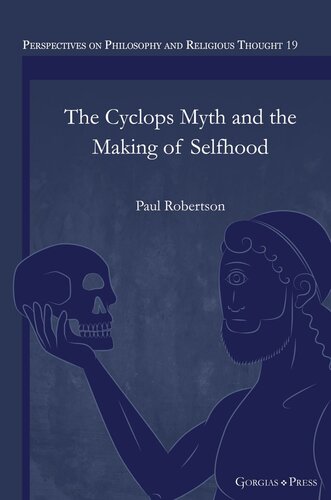

Most ebook files are in PDF format, so you can easily read them using various software such as Foxit Reader or directly on the Google Chrome browser.
Some ebook files are released by publishers in other formats such as .awz, .mobi, .epub, .fb2, etc. You may need to install specific software to read these formats on mobile/PC, such as Calibre.
Please read the tutorial at this link: https://ebookbell.com/faq
We offer FREE conversion to the popular formats you request; however, this may take some time. Therefore, right after payment, please email us, and we will try to provide the service as quickly as possible.
For some exceptional file formats or broken links (if any), please refrain from opening any disputes. Instead, email us first, and we will try to assist within a maximum of 6 hours.
EbookBell Team

5.0
70 reviewsThis book explores the myth of the Cyclops across western history, and how its changing form from ancient Greece until the modern day reveals fundamental changes in each era’s elite understandings and depictions of cultural values. From Homer’s Odyssey to Hellenistic poetry, from Roman epic to early medieval manuscript glosses, and from early modern opera to current pop culture, the myth of the Cyclops persists in changing forms. This myth’s distinct forms in each historical era reflect and distill wider changes occurring in the spheres of politics, philosophy, aesthetics, and social values, and as a story that persists continually across three millennia it provides a unique lens for cross-historical comparison across western thought. The story of the Cyclops myth across western history is particularly reflective of changing selfhood, namely the ways that at least certain authors in each historical-cultural period understand how identity is constructed. This study particularly responds to the work of the philosopher and classicist Christopher Gill, who has influentially argued for a clear binary in notions of selfhood between the ancient and modern worlds. I build on Gill and others, but also depart from them, arguing that a comparative analysis of the Cyclops myth illustrates not a binary but rather a series of incremental, clearly defined, but non-linear shifts in selfhood from the ancient to the modern world. In doing so, my project also provides a comprehensive story of the re-tellings of the Cyclops myth over time, showing how these re-tellings not only reflect changing cultural values and understandings, but also distill and even influence them.